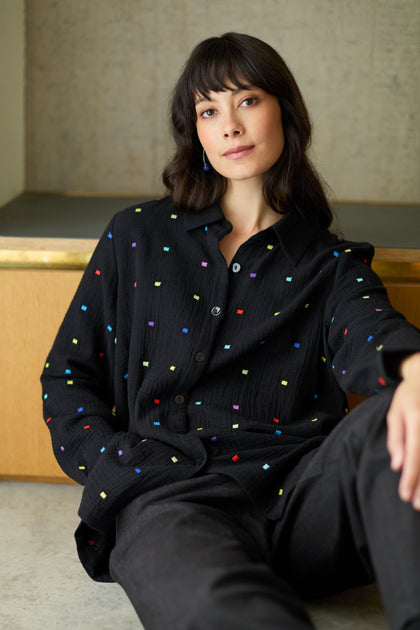Art & Literature
Organic September | We Feed The UK
Article By Sahara .
Sep 19, 2025
Photo credit: Arpita Shah
We Feed the UK: A Radical Reimagining of Food, Farming, and Storytelling
This September, as part of our support for Organic September, Sahara is proud to spotlight our ongoing collaboration with We Feed the UK, a groundbreaking storytelling campaign from The Gaia Foundation that brings together farmers, fishers, photographers, and poets in a moving celebration of land, community, and radical hope.
Following the success of We Feed the World, this new book and exhibition campaign gathers ten time-critical stories from across the British Isles, from urban greenhouses in North London to regenerative hill farms in Wales and flax fields in Ireland. These deeply human tales disrupt the dominant narrative of industrial agriculture, offering instead a series of ‘islands of coherence’ in an increasingly chaotic food system.
From a women-led cooperative in Edinburgh transforming urban growing spaces into communal food hubs to Black-led collectives in London growing tropical crops in community greenhouses, We Feed the UK is a celebration of quiet revolution. It is also an invitation to listen to the soil, to share seeds, and to reimagine how we nourish ourselves and the world around us.
Our Ongoing Partnership
Sahara has long admired the work of The Gaia Foundation and has been honoured to support the We Feed the UK project from its early stages. Following our previous journal features on We Feed the World and Seed Week, this new phase deepens our shared commitment to sustainability, community, and care.
We spoke to the Gaia Foundation team to learn more about the campaign, the process behind the book, and what they hope readers will take away.
Why was it important to bring We Feed the UK to life now?
Food forms us: something we share with every other living being. Recognising this entanglement of reciprocity in which we’re all spun might just be the most holistic way to re-form a culture of care.
The seed of We Feed The UK was sown a decade ago when The Gaia Foundation created We Feed The World: a global collaboration between fifty photographers and smallholder farmers that busted the myth we need industrial agriculture to survive. The scale of ambition was exceeded only by the impact of the stories we would share: those of humble protagonists quietly countering the tide of ‘big agribusiness’ through seed saving networks, women-led cooperatives, and community food growing initiatives. To amplify their resistance we wanted to position these stories of agroecology within the media at a time when there were simply none. Working with celebrated artists – including Rankin, Graciela Iturbide, and Martin Parr – meant the media finally took note.

Photo credit: Andy Pilsbury
Encouragingly, in the years since, awareness of nature-friendly farming has increased. The potential to accelerate its wide-scale adoption inspired We Feed The UK, and we began envisioning a regionally-led storytelling project to reach new audiences with positive examples of the change happening on our doorsteps.
As an island upon which such a large extent of land is tended for agriculture - 71% - fishing and farming with, not against, nature can make the difference to many of the crises we face. Big agribusiness profits from fuelling climate collapse, poisoning soils, and killing our wild kin. Unjust systems spend public money to produce food coated in chemicals, much of it bound for export or the bin. We Feed The UK is a radical re-imagining. What if the places where we produce food could nourish all? What if farmers and fishers could be custodians of these isles, leading their human and more-than-human communities towards justice, diversity, and balance? And what if this collective effort gave us resilience to planetary changes, rooted in relationship? It is precisely because food forms us, that it matters how we form food.

Photo credit: Sophie Gerrard
How were the ten projects and communities chosen?
To find our flagship stories we went foraging for ideas throughout 2023, aiming to craft a campaign with the diverse community that it celebrates.
With the help of photographer Louis Little and assistant Tom Groves from Bread and Butter Studio, we assembled a pop-up portrait studio at agroecology stomping grounds the Oxford Real Farming Conference, Groundswell and Land Skills Fair.
Here we came face to face with food producers from across the British Isles, each modestly sowing grassroots change without fanfare; the resulting portraits paint a picture of an inspiring movement, deep-rooted and radical-minded.
A handful of these encounters went on to become the stories you read in the book, and all those we met were – and continue to be – celebrated through a touring pop-up portrait exhibition.
Why bring together photographers and poets for this project?
Stories are how we have evolved to understand the world and our place in it. By telling these stories through photography and poetry, we can disrupt dominant norms and seed new possibilities of adaptability, recovery, and resilience.
“We are making the culture and culture makes mindsets. We can inspire this change that needs to happen.” Hot Poet, Dizraeli, speaking to the BBC Food Programme.
For We Feed The UK we commissioned ten photographers and ten poets to tell ten tales from England, Ireland, Scotland, and Wales. It is an unprecedented alliance between agroecology and art; between allotment keepers and light seekers, seed savers and syllable savourers, wildflower whisperers and narrative shifters.

Photo credit: Sophie Gerrard
Before being published as a book, each story was exhibited in the local landscape where it was created. Our regional partners and press coverage drew in thousands of attendees from growers and artists to councillors and school students. Out of these encounters, networks are emanating, reconnecting communities through shared inspiration to support food that nourishes people and planet.
Can you share a moment from the field that really stayed with you?
This question is best answered by the farmers, photographers and poets who came together in the field and changed each other’s lives.
“My photography collection is called Sankofa: a Twi term from the Akan tribe of Ghana, stemming from the proverb ‘it is not taboo to go back for what you forgot or left behind’. I come from a family of farmers in India and Africa and it’s something I’ve always seen as a solo activity. My perspective on that has flipped through spending time with the incredible women growing and sharing stories in this radiant collective of sisters.” Arpita Shah, on photographing the GoGrowWithLove and Black Rootz growing collectives in London.

Photo credit: Arpita Shah
“Our landscape is part of our identity in Scotland. Yet that’s a story predominantly told by men. Where are the women’s viewpoints? These photographs focus on their contribution. There is so much scope for positivity in these landscapes, with new opportunities constantly opening. This is a movement.” Sophie Gerrard, on photographing the women-led Grampian Graziers and Lauriston Farm in Scotland.

Photo credit: Sophie Gerrard
“When I met Stuart Johnson and his family I felt hope for the first time in ages. Post-pandemic, with the cost of living crisis, and war and destruction all around us, it is impossible not to get bogged down. This has been much more than a commission: it’s felt like coming up for air.” Johannah Churchill, on photographing West Wharmley Farm in Northumberland.
“The most profound lesson I learnt at Mallon Farm is the transformative power of personal passion in creating change. Helen Keys and Charlie Mallon have turned the land from a dairy farm into a biodiverse flax, food and wildlife ecosystem. As Robin Wall Kimmerer reminds us, ‘caring is not abstract’. Caring is growing a plant that knows this landscape. Caring involves early mornings and long, back-bending days preparing bare fields for tiny seeds. Caring means trusting the natural cycle of the earth and the unpredictable Tyrone weather patterns. After one hundred chemical-free days, the harvest is pulled and tied by the caring hands of family and friends. Retting is not glamorous work. Rainwater-retted flax carries a stink bomb biome, but nutrient-rich water nourishes the land. Caring is late nights lining twisted bundles up along the scutching turbine. Caring is heckling flax, combing compulsively like tangled hair, creating smoother, shinier, sustainable textiles.” Yvette Monahan, on photographing flax grown for fibre by Mallon Farm in Northern Ireland

Photo credit: Yvette Monahan
“Whether photographing tree grafting or sheep shearing or river surveys, it was always about community. This became the real strength and focus of the work. Every time I came away from Penpont, having observed the restorative harmony that was unfolding, I felt hopeful about my daughter’s future.” Andy Pilsbury, on photography The Penpont Project in Wales.
“The work that The Gaia Foundation’s We Feed The UK project has done in translating the day to day actions of farmers into poetry has connected us with new audiences in impactful ways. Many of us, including myself, have been deeply moved by how the stories of our farms are turned into words for all to understand what we do and why we do it. This has helped us as farmers and as an organisation to relay our messages and actions to a wider audience, giving us further impact and enabling us to deliver better actions for farming, nature, food, and climate.” Martin Lines, Director of the Nature Friendly Farming Network
“It felt like I was given a gift. It was a story I had to tell. Because we need more hope. And we need stories like this to know that things are possible.” Jasmine Gardosi, on creating a poem about Fordhal Organic Farm in Shropshire.
“You have no idea how important this project is. Not just for sharing our stories as farmers, but also for us. To have somebody affirm that what we’re doing is pretty alright... it’s life-changing.” Helen Keys, Mallon Farm.

Photo credit: Yvette Monahan
The stories stretch from inner-city London to the Scilly Isles. What connects them?
From the dirt of a country that has ploughed and poisoned, we dig up stories of soil restoration in Northumberland and carbon sequestration in the West Midlands. Of the urban growers and rural farmers remembering the worth beneath their wellies. Remembering that ‘human’ comes from ‘humus’: earth. An etymology summarising an entire story of origin.
In Shropshire and Somerset, we see that we’re the stuff of soil. On one farm, regenerative agriculture is regenerating minds, through a symbiotic community effort that is shaping people and place. On another, population wheats improve the nutrition of the local population. These grains rely on diversity for resilience; these humans learn the strength in difference from delicious bread.
Out of this fertile mulch stem stories of sustainability, in the real sense of the word. Of the flax grown for fibre in Northern Ireland, pulled, stooked, retted, scutched, combed, spun, and woven into local makers’ hands. Of the hedgerows hemming Cumbria’s fields with green rebellion: a great tapestry of pasture, woodland, and beck, with space for food alongside otter, woundwort, moth.
The mutual flourishing that this balance brings is celebrated through stories about justice. In Scotland, women bloom beyond the barriers imposed by our modern male-heir mindset, reclaiming the custodianship of seed, farming, and food that they hold in most Indigenous cultures. In London, Black-led collectives share soursop, watermelon, and cane, ripened in glasshouses with the expertise of 80-year-olds who carried agroecology to these isles from their ancestors. In Wales, elders share their wisdom with young people in an intergenerational, interspecies exchange that is giving nature space to flourish afresh on our oldest hill farms.

Photo credit:Ayesha Jones
How does this book aim to change public understanding of farming in Britain? What do you hope the impact will be on readers, on policy, on the land itself?
Nobel Prize-winning chemist Ilya Prigogine said that “when a complex system is far from equilibrium, small islands of coherence in a sea of chaos have the capacity to shift the entire system to a higher order.” The stories in this book are such ‘islands of coherence’. They don’t shy away from the complexity of the challenges we face, but, rather, show a gentle determination to do things differently.
A Story That Stays with Us
We’ll leave the last word to poet Jasmine Gardosi, whose piece about Fordhall Organic Farm in Shropshire captured the emotional heart of the project: “It felt like I was given a gift. It was a story I had to tell. Because we need more hope. And we need stories like this to know that things are possible.”
We Feed the UK is available now from Papadakis Publisher. Exhibition details, partner events, and local screenings can be found via wefeedtheuk.org.




